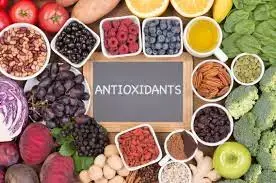- Home
- Medical news & Guidelines
- Anesthesiology
- Cardiology and CTVS
- Critical Care
- Dentistry
- Dermatology
- Diabetes and Endocrinology
- ENT
- Gastroenterology
- Medicine
- Nephrology
- Neurology
- Obstretics-Gynaecology
- Oncology
- Ophthalmology
- Orthopaedics
- Pediatrics-Neonatology
- Psychiatry
- Pulmonology
- Radiology
- Surgery
- Urology
- Laboratory Medicine
- Diet
- Nursing
- Paramedical
- Physiotherapy
- Health news
- Fact Check
- Bone Health Fact Check
- Brain Health Fact Check
- Cancer Related Fact Check
- Child Care Fact Check
- Dental and oral health fact check
- Diabetes and metabolic health fact check
- Diet and Nutrition Fact Check
- Eye and ENT Care Fact Check
- Fitness fact check
- Gut health fact check
- Heart health fact check
- Kidney health fact check
- Medical education fact check
- Men's health fact check
- Respiratory fact check
- Skin and hair care fact check
- Vaccine and Immunization fact check
- Women's health fact check
- AYUSH
- State News
- Andaman and Nicobar Islands
- Andhra Pradesh
- Arunachal Pradesh
- Assam
- Bihar
- Chandigarh
- Chattisgarh
- Dadra and Nagar Haveli
- Daman and Diu
- Delhi
- Goa
- Gujarat
- Haryana
- Himachal Pradesh
- Jammu & Kashmir
- Jharkhand
- Karnataka
- Kerala
- Ladakh
- Lakshadweep
- Madhya Pradesh
- Maharashtra
- Manipur
- Meghalaya
- Mizoram
- Nagaland
- Odisha
- Puducherry
- Punjab
- Rajasthan
- Sikkim
- Tamil Nadu
- Telangana
- Tripura
- Uttar Pradesh
- Uttrakhand
- West Bengal
- Medical Education
- Industry
Antioxidant-rich diets may improve outcomes in Endometriosis-related rheumatoid arthritis in women: Study

Antioxidant-rich diets may improve outcomes in Endometriosis-related rheumatoid arthritis in women suggests a study published in the International Journal of Women's Health.
A study was done to evaluate the association between the Composite Dietary Antioxidant Index (CDAI) and the risk of endometriosis (EM)-related rheumatoid arthritis (RA) in women of childbearing age. Using the data from the National Health and Nutrition Examination Survey database, this cross-sectional study included women of childbearing age. The CDAI was obtained by summing the standardized Z-values of the dietary intakes. EM was diagnosed based on a questionnaire-based survey. The outcome of this study was the presence of RA, which was defined by a questionnaire. The associations of CDAI and EM with the risk of RA were determined using weighted logistic analysis. Additive interaction was evaluated using the relative excess risk due to interaction (RERI), the attributable proportion due to interaction (AP), and the synergy index (S). Results: In total, 3803 patients were included, of which 74 patients (1.99%) were with RA. A lower CDAI [odds ratio (OR): 1.85, 95% confidence interval (CI): 1.12 to 3.04, P= 0.015] and the presence of EM (OR: 3.05, 95% CI: 1.19 to 7.81, P= 0.023) was associated with the risk of RA. The result demonstrated an additive interaction of a lower CDAI and the presence of EM on the risk of RA (OR: 6.19, 95% CI: 2.33 to 16.43, P < 0.001, P of trend =0.007). Nevertheless, there was no significant additive interaction after being assessed by the RERI, AP, and S. However, a joint effect of a lower CDAI and EM on the risk of RA (OR: 3.94, 95% CI: 1.35 to 11.51, P= 0.013) was observed. The study identified EM, and lower CDAI, was related to the risk of RA. Lower CDAI score was also associated with the risk of EM-related RA. This study indicates the importance of antioxidant intake in daily diet for the management of EM-related RA.
Reference:
Hu H, Wang X, Ren Y, Zhang T, Sun L. Association Between Composite Dietary Antioxidant Index and the Risk of Endometriosis-Related Rheumatoid Arthritis in Women of Childbearing Age: A Cross-Sectional Study Based on the National Health and Nutrition Examination Survey Database. Int J Womens Health. 2024;16:717-726 https://doi.org/10.2147/IJWH.S453602
Dr. Shravani Dali has completed her BDS from Pravara institute of medical sciences, loni. Following which she extensively worked in the healthcare sector for 2+ years. She has been actively involved in writing blogs in field of health and wellness. Currently she is pursuing her Masters of public health-health administration from Tata institute of social sciences. She can be contacted at editorial@medicaldialogues.in.
Dr Kamal Kant Kohli-MBBS, DTCD- a chest specialist with more than 30 years of practice and a flair for writing clinical articles, Dr Kamal Kant Kohli joined Medical Dialogues as a Chief Editor of Medical News. Besides writing articles, as an editor, he proofreads and verifies all the medical content published on Medical Dialogues including those coming from journals, studies,medical conferences,guidelines etc. Email: drkohli@medicaldialogues.in. Contact no. 011-43720751


